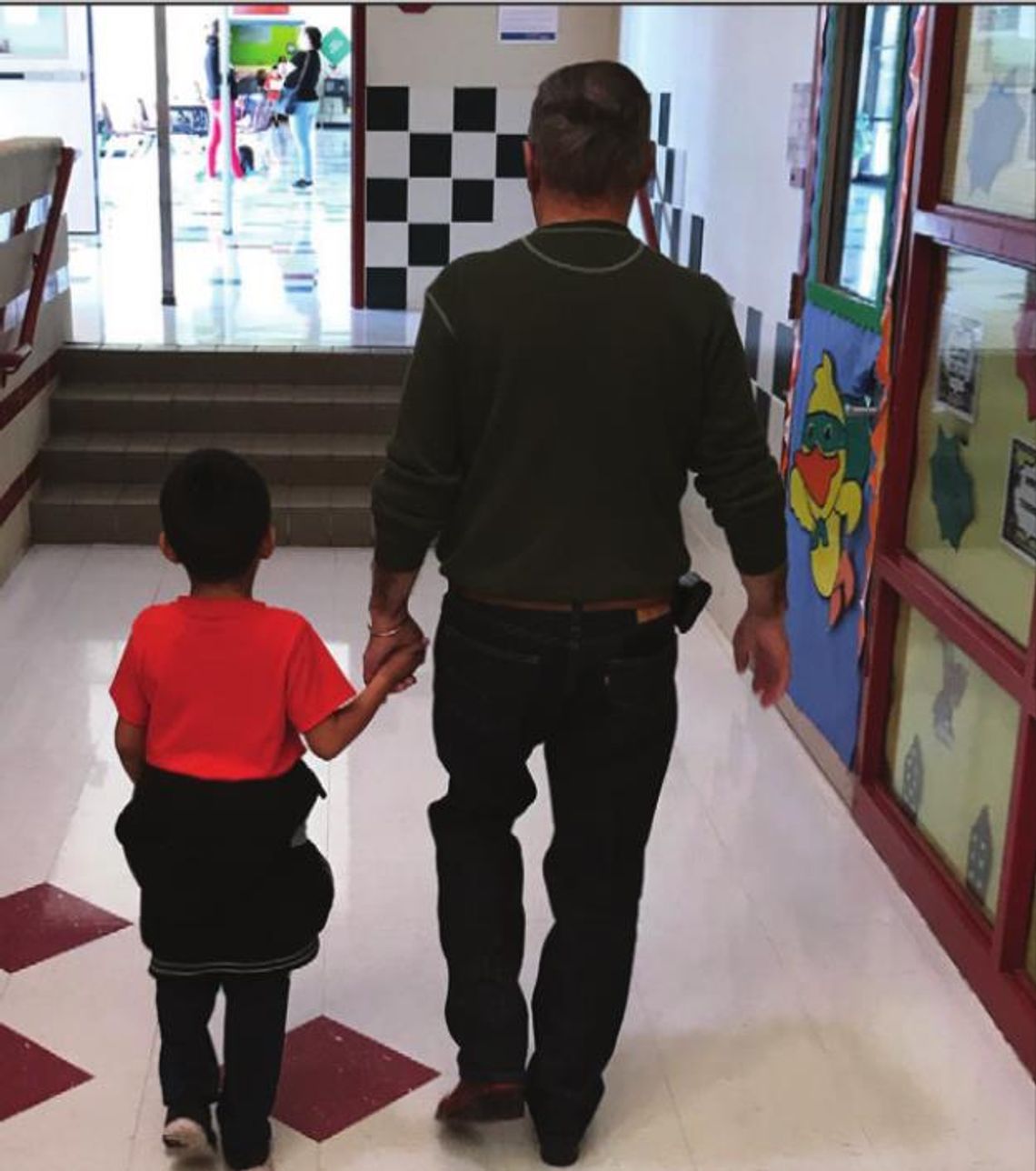Volunteers are needed to MUNCH with Taylor ISD students for 30 minutes during the week.
The Mentors at Lunch or MUNCH program has restarted after a two-year hiatus due to the COVID-19 pandemic.
“It’s 30 minutes per week 10 weeks per semester,” said John Matthews with
Taylor ISD Family Support Services. “If you work in Taylor, you can mentor and return to work within an hour.”
During the program, students talk and eat with their mentor. After the meal, they can play cards, games or jus have a quick chat.
“You don’t need to juggle or know any jokes or magic tricks. It’s easy. Just show up,” Matthews said. “Showing up is 99% of mentoring.”
Mentors are needed at every level. However, according to Matthews, the elementary schools are a priority.
Although volunteers have to complete a background check and orientation, there are no specific requirements to mentor. A diverse group of community members have been a part of the program.
“I love being a Munch at Lunch mentor. For the first few minutes while the students are eating lunch, we talk about everything. How their week is going, what they’ve done fun, and believe me, most of them open up and talk,” said Anita Volek, Taylor ISD board trustee. “The big idea, show up and smile. The kids do the rest. How easy is that? And, how rewarding as well.”
City Councilman Dwayne Ariola said mentoring is a way to show students that someone in the community cares.
“Love to mentor and understand how just a few minutes of your time can prove to these young men and women that you care about them and that they have someone on their side in community,” he said.
“Family life has so many distractions and just getting alone time with a grownup is vital.”
Mayor Brandt Rydell, who grew up in Taylor, said mentoring is beneficial for the students, and he is living proof.
“Growing up in Taylor, I benefited greatly from the guidance and encouragement I received from caring adults throughout this community,” he said.
“When I moved back to Taylor many years ago, I resolved to pay that kindness forward to the young people of today’s Taylor.”
Even with reservations about what volunteering as a mentor meant, Rydell felt it was one way to give back to his community.
“Engaging with our young people and expressing an interest and concern in them as individuals goes a long way,” he said. “I view mentoring as an investment in the most precious resource we have as a community, and I encourage anyone who might be interested to give it a try. You’ll be glad you did.”
Matthews said mentors can help guide a student’s future with a supportive relationship, which is one reason he does the job.
“The more healthy intergenerational relationships a student has, the less likely they are to engage in at risk behaviors and the more likely they will go on to a postsecondary education,” he said. “When you mentor, the student begins to confide in you and starts to trust you. You can watch it happening. They begin to believe in themselves, and that’s the idea.”
For more information or to sign up to volunteer, call Matthews at 512-352-3910.




